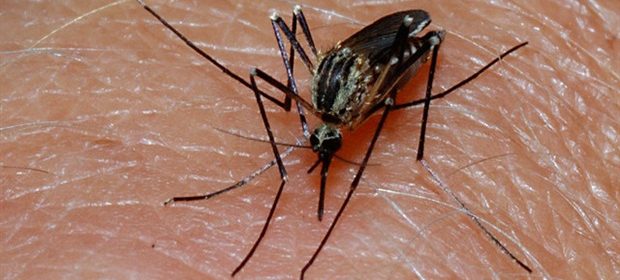Community health workers can help save thousands of maternal and infant lives from malaria

Community health workers can make a great difference in increasing the number of pregnant women who receive life-saving preventive antimalarial treatment, according to a study conducted in four sub-Saharan African countries and led by the Barcelona Institute for Global Health (ISGlobal), an institution supported by "la Caixa" Foundation. The findings, published in The Lancet Global Health, will help to guide malaria control strategies in pregnant women and improve maternal and infant health in malaria-endemic countries.
Malaria during pregnancy puts the health of both mother and child at risk. In 2020, an estimated 11.6 million pregnancies in Africa were exposed to malaria infection, resulting in 11% of neonatal deaths and 20% stillbirths. For this reason, the WHO recommends that pregnant women receive three doses of the antimalarial drug sulfadoxine-pyrimethamine (SP) during their antenatal visits if they live in areas with high to moderate malaria transmission. However, the proportion of eligible women receiving this intermittent preventive treatment (IPTp) remains unacceptably low in many countries.
An innovative, community-based approach
The Unitaid-funded TIPTOP project (Transforming Intermittent Preventive Treatment for Optimal Pregnancy), co-led by Jhpiego and Clara Menéndez, Director of ISGlobal's Maternal, Child and Reproductive Health Initiative, took an innovative "no missed opportunity" approach to increase IPTp coverage: using community health workers, who have been shown to improve the uptake of health interventions such as childhood immunizations. This implementation science project took place in took place in Democratic Republic of Congo, Madagascar, Mozambique and Nigeria between 2017-2022. Collaboration with WHO and Medicines Malaria Venture were a mainstay throughout the project life.
This study is the largest implementation project carried out in collaboration with the countries' ministries of health, in which we simultaneously evaluated the impact of community health workers on IPTp coverage and antenatal care attendance."
Raquel González, TIPTOP senior epidemiologist and lead author of the study
In the project, community health workers identified pregnant women in the community, provided the required SP doses to eligible women and referred them to the health facility for antenatal care. More than 18,000 women participated in 32 household surveys over three years to assess IPTp coverage before, during, and after the community-based delivery approach.
The results show that IPTp coverage increased significantly after the community-based implementation in all study countries, ranging from 133.6% in Madagascar to 473% in Nigeria, where coverage increased from 12.7% to 31.8%. Importantly, the approach did not reduce antenatal care attendance. On the contrary, it increased slightly in most study areas.
"These results are robust and will help to inform malaria control strategies," says Clara Menéndez. Approximately 10,000 pregnant women and 200,000 of their newborns die each year from malaria, which means that increasing IPTp uptake through community health workers can save thousands of maternal and infant lives in African countries.
"We're delighted to see these community-led approaches making a difference in the lives of thousands of pregnant women. Beyond achieving targets, TIPTOP has underscored the critical role community health workers play in supporting the health of women, where they live," said Elaine Roman, TIPTOP Project Director. "This offers promise and opportunity well beyond life of project; providing a sustainable and trustworthy pathway to improve the health of women across a range of challenges."
Barcelona Institute for Global Health (ISGlobal)
González, R., et al. (2023) The impact of community delivery of intermittent preventive treatment of malaria in pregnancy on its coverage: a quasi-experimental evaluation in four sub-Saharan African countries. The Lancet Global Health. doi.org/10.1016/S2214-109X(23)00051-7.
Posted in: Child Health News | Medical Research News | Women's Health News | Healthcare News
Tags: Global Health, Malaria, Pregnancy, Reproductive Health, Research
Source: Read Full Article